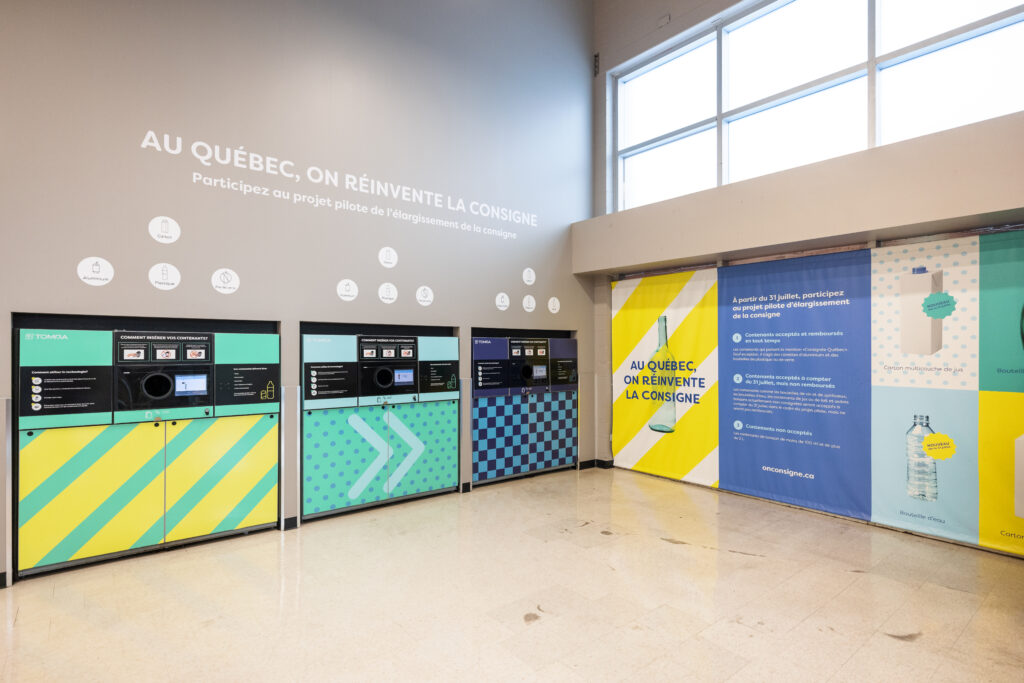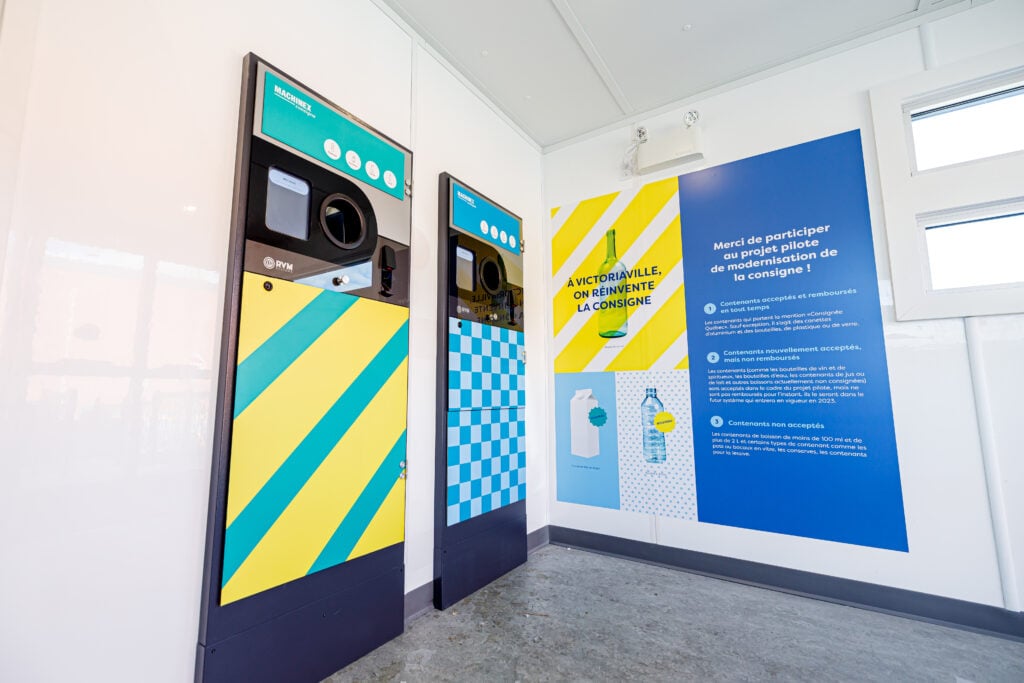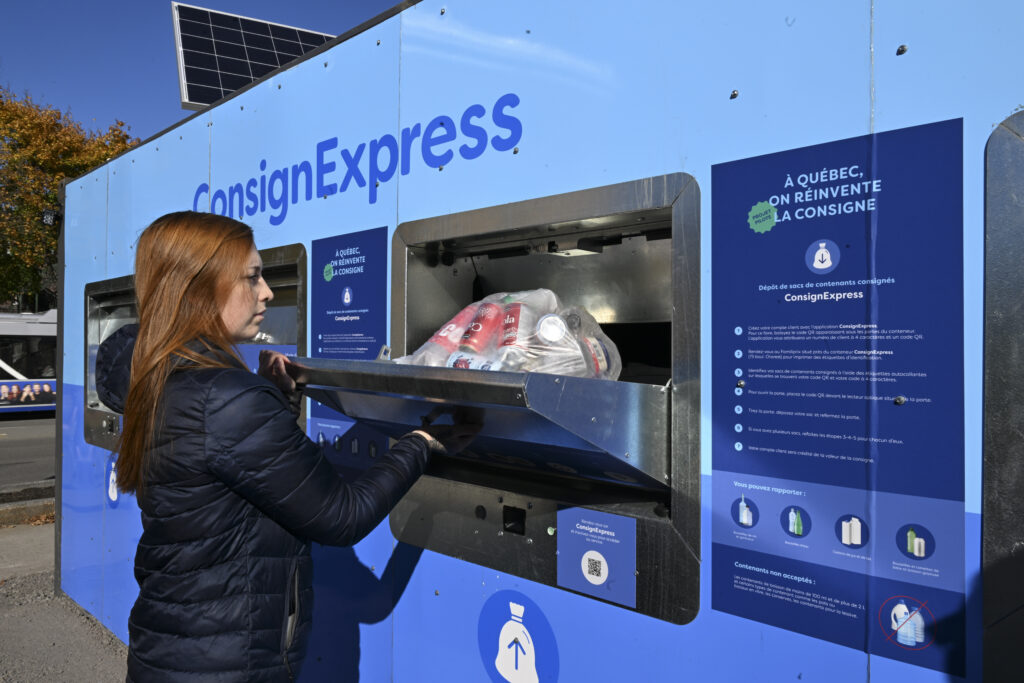Toward a modernized, environmentally responsible deposit-refund system for quebec
In January 2020, the Quebec government announced its intention to modernize the deposit-refund system and expand it to include more types of beverage container.
Objectives
Recover and recycle larger numbers of redeemable beverage containers and find ways to improve recovery and reclamation of materials, with a view to reducing our ecological footprint.
In other words, deposit-refund modernization is above all an environmental project.
Deposit-refund:
Taking action to protect the environment
The deposit-refund system for beverage containers is a true action to protect the environment. Sorting containers by material ensures optimum recovery. This way, the materials (aluminum, plastic and glass) are processed and recycled in a closed-loop system reserved for redeemable containers that has proven its worth for nearly 40 years.
Deposit-refund ensures better performance than any other materials-recovery method, since all recovered beverage containers are 100% recycled. When people return containers, they are also helping to reduce the impacts of climate change by lessening reliance on raw materials extraction to manufacture new containers.
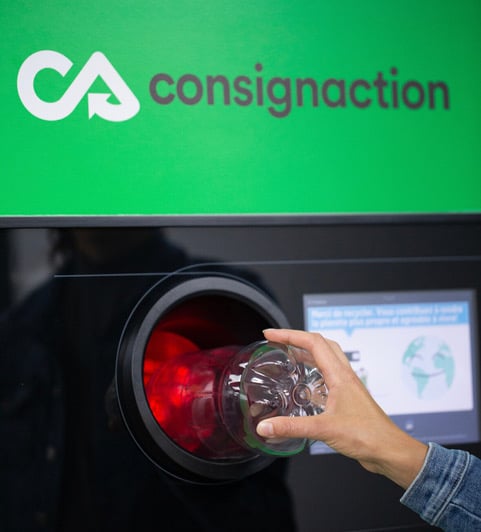
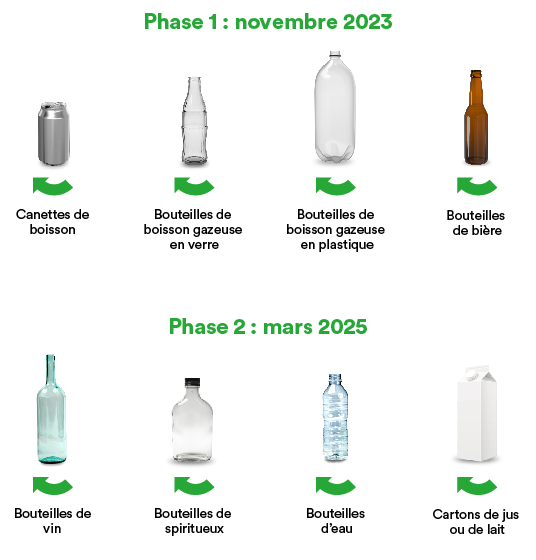
Beverage containers targeted by modernization
The containers targeted by this major reform are beverage containers from 100 milliliters to 2 liters, whether made of aluminum, plastic, glass or multi-layer cardboard.
Eventually, 5 billion containers—including more than a billion plastic water bottles—will be redeemable per year, compared with 2.4 billion currently.
Pilot projects
to ensure things are done right
To define the framework of the deposit-refund system and plan the buildout of an accessible, efficient recovery network all across the province, seven pilot projects were conducted in six Quebec municipalities. These field tests validated the operational concepts for recovery, assessed citizens’ responses and gathered the information required to establish an efficient deposit-refund model.
Two implementation phases
In June 2022, the government enacted a regulation to officially undertake the modernization of the Quebec deposit-refund system. Because of the volume of beverage containers targeted by the expansion and the structural changes required across the province, modernization will be implemented gradually, in two phases.
November 1, 2023
- deposit-refund has been extended to ALL aluminum beverage containers from 100 ml to 2 l, and now includes cans of ready-to-drink beverages, whether fruit juices, sparkling waters, flavored waters, cocktails or small vegetable juices.
- All containers that were already redeemable remain redeemable.
- The amount of the deposit is standardized to 10 cents for all beverage containers, except for certain glass bottles of 500 mL and larger, which are already redeemable and for which the amount will be 25 cents.
A system that is easier to understand and use
The fact that the modernized system now includes all beverage containers (except those smaller than 100 mL and larger than 2 L) makes it easier for consumers to understand how deposit-refund works. This new “more inclusive” systems means that greater numbers of containers will be 100% recycled.
A financial incentive
Increasing the deposit amount to 10 cents is a financial incentive that should have a positive effect on the overall recovery rate.
March 2025
As of this date, ALL aluminum, glass, plastic and multi-layer beverage containers of between 100 mL and 2 L become redeemable.
Buildout of the network of return sites
As of November1, 2023, the network of return facilities available to the public consists mainly of retailer drop-off points. All retailers who sell returnable beverage containers and whose sales area exceeds 375m2 (4,036 ft2) are required to take back returnable containers. These retailers are required to post a sign at the entrance to their business indicating whether or not their business is a returnable container depot.
News
Quebecers will still be able to return beverage containers to retailers, but the coming months they will also have access to new kinds of return sites. These new spaces will serve people in cities as well as regions and will be easy to use, thanks to on-site assistance, clean and modern surroundings, state-of-the-art equipment and electronic refund applications.
Bulk return counters will also be made available to citizens as well as institutional and commercial clients.
Once the system is fully deployed, citizens will be able to count on a few thousand return locations throughout Quebec.
Plastic and glass : new materials
One of the objectives of modernization is to recycle beverage containers made of #1 plastic (PETE) in a closed loop; that is, within a circuit reserved for that material that enables manufacturing of new bottles. Local recycling value chains will be involved. A similar goal has been established for glass.

